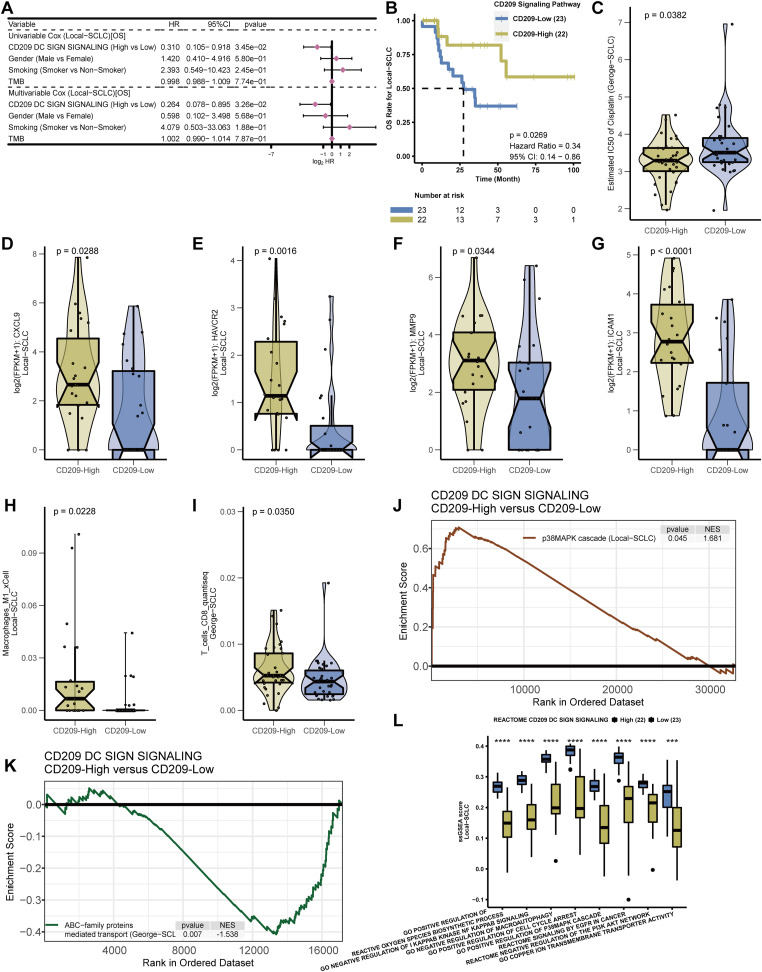
CD209 signaling pathway as a biomarker for cisplatin chemotherapy response in small cell lung cancer


One of the bottlenecks in the clinical treatment of small cell lung cancer (SCLC) is its susceptibility to multidrug resistance. While SCLC is sensitive to platinum-based chemotherapy at the initial stage of treatment, it can rapidly become drug-resistant, allowing tumor growth to accelerate. A significant decrease in drug sensitivity after recurrence and multidrug resistance can seriously interfere with the effectiveness of treatment, making sensitivity maintenance one of the urgent challenges to be solved. Therefore, discovering prognostic markers for cisplatin chemotherapy and understanding the mechanisms of cisplatin resistance have great practical significance for improving the outcomes of SCLC patients. CD209, also known as DC-SIGN, belongs to the C-type lectin superfamily and is mainly expressed in dendritic cells. In the past few years, growing evidence has shown that CD209 can also combine with Lewis antigens (which are highly expressed in cancer) and promote the process of T-cell presentation, thus initiating a series of immune cascades.1 Damaging this process, which thus helps tumors evade the immune response, may be one of the possible mechanisms of chemotherapy resistance. However, controversy has been raised about the role of the CD209 signaling pathway in different types of cancer. In lung cancer, increased expression of CD209 is associated with better survival, while in colorectal cancer, the opposite trend is observed, with CD209 promoting cancer progression.1,2 In this study, we explored the relationships between the activation of the CD209 signaling pathway with the efficacy of cisplatin and prognosis in SCLC patients.
